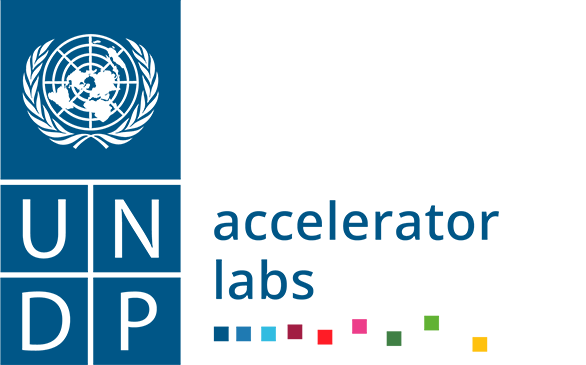Data to Policy Navigator
What it does. The Data to Policy Navigator is designed to assist government executives and policymakers in grasping the fundamentals of data-driven decision-making. It provides a step-by-step guide and a range of practical examples from across the globe on how to integrate data into policy and programme development.
Value proposition for the government/other partner. Addressing crises like climate change, the recovery from the COVID-19 pandemic, and gender inequality requires effective, transparent, and evidence-based government policies. The advancements in digital technologies and the data they generate are game-changers for policymakers around the world. Today, ministries working on any given issue can use a range of new data sources like satellite imagery, social media, and mobile data that they could rely on to back their policies and programme proposals. Many countries, however, are still unable to leverage this new data reality – impeding the development of more effective policies that are informed and backed by evidence. The Data to Policy Navigator aims to give policymakers the know-how to systematically integrate new data sources into their decision-making and policy-development processes.
Why and when to use it. The Data to Policy Navigator is specifically designed for government officials with no or with basic prior data science knowledge and experience. It offers step-by-step actionable recommendations and examples throughout the policy development process, starting with problem definition to policy design and evaluation. This tool is most useful for policymakers who are starting to develop a data-driven policy in any sector or region. The Data to Policy Navigator sets out four key stages that break down the process of using data when developing policies, starting with problem definition from a data-angle and concluding with policy evaluation. Beyond these four stages, the Navigator covers four overarching themes on ensuring data governance and ethics, building data capacities, fostering a data culture, and developing institutional mechanism for continued use of data. The tool also provides use-cases from across regions and different sectors, to inspire policymakers.
Known issues and troubleshooting. Data can play a valuable role in shaping, developing, and implementing policies – from understanding the needs of citizens, to identifying the impact of policies and other interventions. With this in mind, the Data to Policy Navigator can be useful for policymakers working on a wide-range of different topics. Ideally, policymakers should engage with the tools and resources available on the Navigator early in the policymaking process – in order to best leverage the role and potential of data. The four-stage guidance in the Navigator will be most useful if policymakers have access to technical experts (or have a data expertise themselves), who can support them along the journey of integrating data into their policy design. Other parts of the Navigator, such as the collection of use cases, may be used any time.
Context. Several initiatives and projects have exerted a lot of effort to improve the quality of the data collected and produced in many developing countries around the world. However, according to research conducted by GIZ and the Open Data Institute not enough focus has been given to building the capacities of policymakers, who are the primary data consumers. To address this gap, GIZ’s Data4Policy Initiative and UNDP’s Digital Office developed the Data to Policy Navigator. A resource, specifically designed for government officials with no or with basic prior data science knowledge and experience. It aims to give policymakers the know-how to systematically integrate new data sources into their decision-making and policy-development processes.
Cost. The Data to Policy Navigator is a free-to-use tool. Although designed as a self-led and self-paced platform, governments may want to contract external expertise to facilitate key discussions or activities highlighted by the Navigator.
People. The Data to Policy Navigator is a self-led tool. However, managers may want to consider facilitating group discussions, learning, and broader mentoring to embed data-driven policymaking.
Focal point. Alena Klatte
Country, year, and language. Global, 2023, English (translation to French & Spanish planned in 2023)
Resources
- Data to Policy Navigator: https://www.datatopolicy.org/
- Op-Ed by UNDP on importance of data-informed policies: https://www.mei.edu/publications/future-climate-technology-data-informed-policies-are-indispensable-mitigating-climate
- Press release from beta launch event: https://www.undp.org/news/undp-mitigating-data-challenges-imperative-human-development-and-getting-sdgs-back-track
